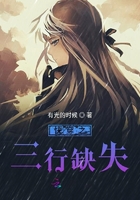For a while his followers stood astonished. They might have heard of guns from the coast people, but living as they did in the interior where white folk did not dare to travel, they had never seen their terrible effects.
"Magic!" they cried. "Magic!"
"Of course," exclaimed Jeekie, who by now had arrived upon the scene.
"What else did you expect from the husband of Little Bonsa? Magic, the greatest of magic. Go, roll that beast away before your chief is crushed to death."
They obeyed, and the man sat up, a fearful spectacle, for he was smothered with the blood of the lion and somewhat cut by her claws, though otherwise unhurt. Then feeling that the life was still whole in him, he crept on his hands and knees to where Alan stood, and kissed his feet.
"Aha!" said Jeekie, "Little Bonsa score again. Cannibal tribe our slave henceforth for evermore. Yes, till kingdom come. Come on, Major, and cook supper in perfect peace."
The supper was cooked and eaten with gratitude, for seldom had two men needed a square meal more, and never did venison taste better. By the time that it was finished darkness had fallen, and before they turned in to sleep in the neat reed hut that the Ogula had built, Alan and Jeekie walked up the island to see if the lioness had been skinned, as they directed. This they found was done; even the carcase itself had been removed to serve as meat for these foul-feeding people. They climbed on to the pile of rocks in which the beast had made her lair, and looked down the river to where, two hundred yards away, the Ogula were encamped. From this camp there rose a sound of revelry, and by the light of the great fires that burned there, they perceived that the hungry savages were busy feasting, for some of them sat in circles, whilst others, their naked forms looking at that distance like those of imps in the infernal regions, flitted to and fro against the glowing background of the fires, bearing strange-looking joints on prongs of wood.
"I suppose they are eating the lioness," said Alan doubtfully.
"No, no, Major, not lioness; eat dwarf by dozen--just like oysters at seaside. But for Little Bonsa /we/ sit on those forks now and look uncommon small."
"Beasts!" said Alan in disgust; "they make me feel uncommon sick. Let us go to bed. I suppose they won't murder us in our sleep, will they?"
"Not they, Major, too much afraid. Also we their blood-brothers now, because we bring them first-class dinner and save chief from lion's fury. No blame them too much, Major, good fellows really with gentle heart, but grub like that from generation to generation. Every mother's son of them have many men inside, that why they so big and strong. Ogula people cover great multitude like Charity in Book. No doubt sent by Providence to keep down extra pop'lation. Not right to think too hard of poor fellows who, as I say, very kind and gentle at heart and most loving in family relation, except to old women whom they eat also, so that they no get bored with too long life."
Weary and disgusted by this abominable sight though he was, Alan burst out laughing at his retainer's apology for the sweet-natured Ogula, who struck him as the most repulsive blackguards that he had ever met or heard of in all his experience of African savages. Then wishing to see and hear no more of them that night, he retreated rapidly to the hut and was soon fast asleep with his head pillowed on the box that hid the charms of Little Bonsa. When he awoke it was broad daylight.
Rising he went down to the river to wash, and never had a bath been more welcome, for during all their journey through the forest no such thing was obtainable. On his return he found his garments well brushed with dry reeds and set upon a rock in the hot sun to air, while Jeekie in a cheerful mood, was engaged cooking breakfast in the frying-pan, to which he had clung through all the vicissitudes of their flight.
"No coffee, Major," he said regretfully, "that stop in forest. But never mind, hot water better for nerve. Ogula messengers gone in little canoe to Asiki at break of day. Travel slow till they work off dwarf, but afterwards go quick. I send lion skin with them as present from you to great high-priestess Asika, also claws for necklace. No lions there and she think much of that. Also it make her love mighty man who can kill fierce lion like Samson in Book. Love of head woman very valuable ally among beastly savage peoples."
"I am sure I hope it won't," said Alan with earnestness, "but no doubt it is as well to keep on the soft side of the good lady if we can.
What time do we start?"
"In one hour, Major. I been to camp already, chosen best canoe and finest men for rowers. Chief--he called Fanny--so grateful that he come with them himself."
"Indeed. That is very kind of him, but I say, Jeekie, what are these fellows going to live on? I can't stand what you call their 'favourite chop.'"
"No, no, Major, that all right. I tell them that when they travel with Little Bonsa, they must keep Lent like pious Roman Catholic family that live near Yarleys. They catch plenty fish in river, and perhaps we shoot game, or rich 'potamus, which they like 'cause he fat."
Evidently the Ogula chief, Fahni by name, not Fanny, as Jeekie called him, was a man of his word, for before the hour was up he appeared at the island in command of a large canoe manned by twelve splendid- looking savages. Springing to land, he prostrated himself before Alan, kissing his feet as he had done on the previous night, and ****** a long speech.
"That very good spirit," exclaimed Jeekie. "Like to see heathen in his darkness lick white gentleman's boot. He say you his lord and great magician who save his life, and know all Little Bonsa's secrets, which many and unrepeatable. He say he die for you twice a day if need be, and go on dying to-morrow and all next year. He say he take you safe till you meet Asiki and for your sake, though he hungry, eat no man for one whole month, or perhaps longer. Now we start at once."















